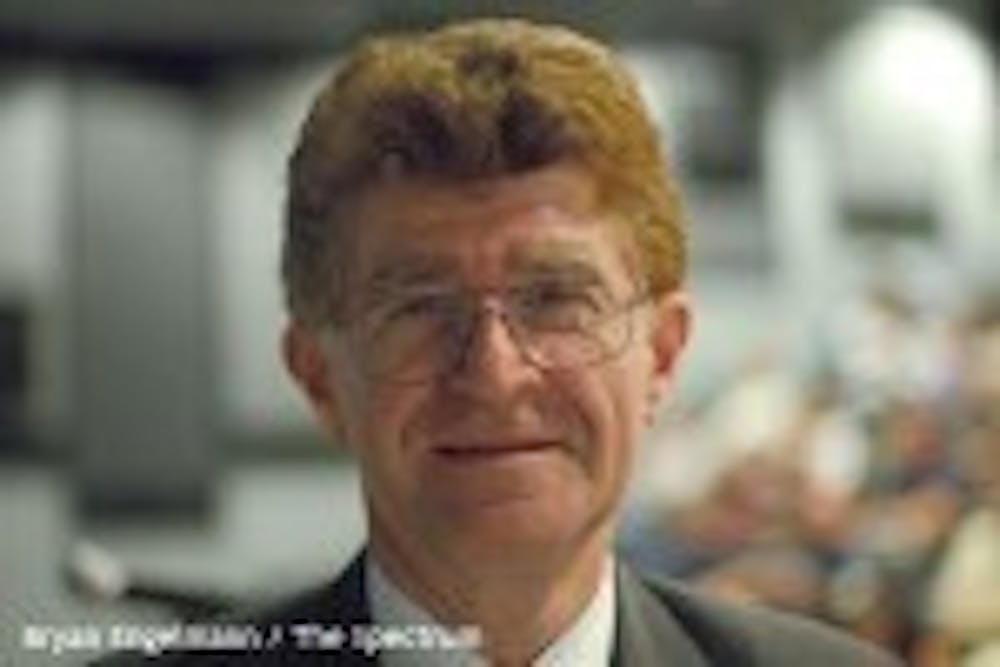An audience of over 300 attended the New Frontier of Nanotechnology, a lecture presented by Mihail C. Roco, senior advisor of nanotechnology for the National Science Foundation this past Thursday in the Student Union Theater.
Students, faculty and industrial workers attended the lecture to learn about new trends in nanotechnology and their impact on several aspects of economic development, including manufacturing, education and cancer research.
Roco began with the definition of nanotechnology and introduced its stages of development since 2000.
"One of the reasons why nanotechnology is important is that it reaches the basic level of organization, of atoms and molecules which symbolize the beginning of life," Roco said, "and the second reason is that it provides tools in developing research and manufacture."
One of the many challenges of developing nanotechnology is the measurement of nanostructure. According to Roco, nanotechnology is the control and restructuring of matter at dimension of roughly 1 to 100 nanometers. To manipulate matter at that level, one must understand the behavior of the quantum effects of small particles.
Some of the more interesting applications of Nanotechnology are to increase the efficiency of solar energy, finding better treatments for Parkinson's disease and biomedical repair of human tissue, Roco said.
"The lecture was very informative on the topics discussed in detail for construction of nano particles. The application of nano particles in cancer therapy is of interest to me the most," said Vandana Pradhan, a postdoctoral follow of immunology at the Roswell Park Cancer Institute
Roco pointed out that countries like Japan, China, Germany and France are showing an increased interest in the development of future commercial and research platforms for nanotechnology. However, the US still has the competitive advantage.
"Nanotechnology has broad applications, and it will serve as an important technology, manufacture and research platforms in the future," Roco said.
Roco indicated that since 2000, there has been an increase of approximately 30% to 35 % in funding for nanotechnology.
"New York State alone will receive approximate 350 million of funding in 2008. Most of the funding will go to academic research and development of manufacture platforms," Roco said.
Many people in attendance were UB graduate students who found the lecture very useful and felt that it explained concepts of how nanotechnology could possibly relate to their field of study well.
"The lecture was very interesting," said Glormiar Vicente, a graduate student in chemistry. "It gave us a good insight of the impact of nanotechnology on society and its future."





